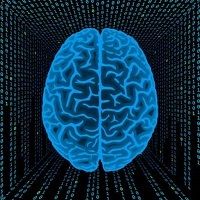Article
Traumatic Brain Injury: Researchers Have Antibody to Halt Toxic Protein
Author(s):
Boston researchers say they have found the direct cause and potential cure for neurodegeneration following traumatic brain injury.The culprit, they write, is a misshapen and toxic brain protein, one they say they can destroy with a targeted antibody.

Traumatic brain injury can initiate changes in brain proteins that lead directly to Alzheimer’s disease and chronic traumatic encephalopathy, a Boston research team has found.
The proof is in their discovery of a misshapen and toxic isoform of the tau protein that can develop as soon as 12 hours after the injury and steadily destroy brain cells.
The good news is that the researchers have also developed an antibody to that protein, which they said can detect and destroy it thus stopping the neurodegenerative process—at least in mouse models.
Writing July 15 in Nature, Beth Israel Deaconess Medical Center’s Kun Ping Lu, MD, PhD, chif of the center’s division of translational therapeutics and a professor of medicine at Harvard Medical School said the teams study offers new hope for TBI patients, including members of the military.
“Our study shows that an early neurodegenerative process induced by the toxic tau protein can begin just hours after a traumatic brain injury, “Lu said, “We have developed a potent monoclonal antibody that can prevent the onset of widespread neurodegeneration.”
Their next goal is to “humanize” the antibody so it can be used for early detection and treatment of neurodegeneration in the human brain.
If it leads to successful treatment, the finding on the protein isoform could have major implicatons for the thousands of active-duty military personnel exposed to blast injuries, the team wrote.
But it could also have implications for treating concussion, particularly repeated concussions experienced by people in many contact sports.
The protein, known as cis P-tau, disrupts the brain’s microtubule scaffolding systems and the transport of mitochondria and eventually leads to neuron death.
Over time, the protein spreads throughout the brain, killing one neuron after another. It plays a role in memory loss in Alzheimer’s and causes extensive neurofibrillary tau tangles.
Researchers were uncertain whether these tangles, known as tauopathy, are a consequence of neurogenerative disease or a cause.
Lu and his team said they have proven that the toxic protein is definitely a cause.
With co-author Xiao Zhen Zhou, MD, Lu has financial interests in Pinteon Therapeutics, a company founded in Cambridge, MA in 2014, and which has licensed technology known as Pin-1 from Beth Israel Deaconess.




